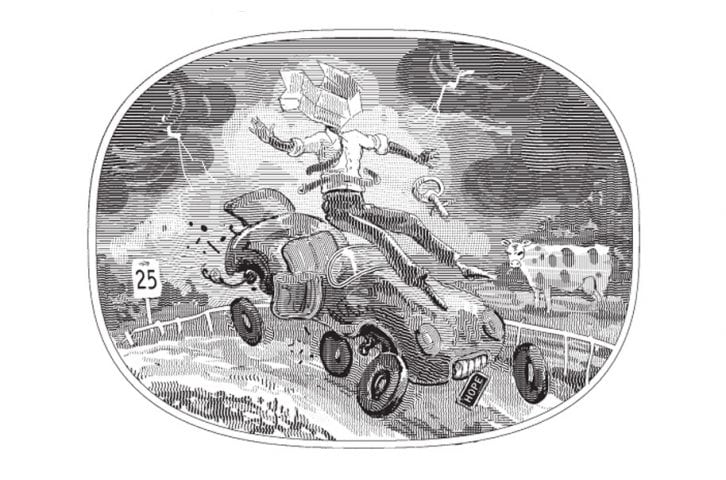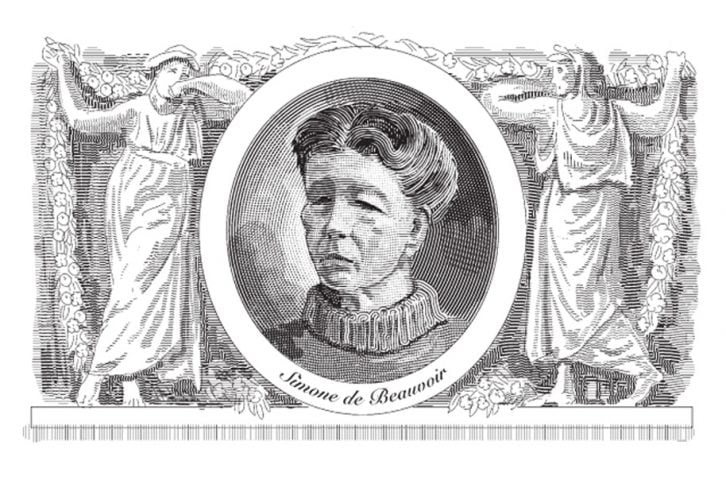Books Reviewed
A review of The Promise: President Obama, Year One , by Jonathan Alter.
, by Jonathan Alter.
He's our kind of guy," Barack Obama said of Timothy Geithner, according to Jonathan Alter's new book, The Promise. What kind of guy is that? The answer says a lot about our president and his administration.
According to Alter, a senior editor at Newsweek magazine, Obama and his future Treasury Secretary bonded immediately. Beyond being born weeks apart in the summer of 1961, "both prided themselves on their unpretentiousness." Both grew up abroad—Obama in Indonesia, Geithner in "Zimbabwe, Zambia, India, and Thailand." Their families also shared a professional connection. "During the 1980s, Geithner's father, Peter Geithner, oversaw the Ford Foundation's micro-credit program and had even once met with one of its Indonesian program officers, S. Ann Dunham-Soetoro, Obama's mother."
Obama liked Geithner because they came from the same place: the world of elite universities, nonprofits, and government activism. This is the world in which Obama is most comfortable. He and Geithner are both products of a meritocracy that emphasizes brain power over the pursuit of profit, and global consciousness rather than American exceptionalism. Membership in this club was enough to form a strong bond between Geithner, a child of privilege, and Obama, a biracial kid from Hawaii who was partly raised by his grandparents. And so Obama has stood by Geithner through scandal and a disappointing economic recovery. To do otherwise, in some sense, would be a betrayal of his class.
The Obama Administration is filled with "our kind of guys." Alter calculates that a full quarter of Obama's political appointees have some connection to Harvard; the six other Ivy League schools are well represented, too. All told, Alter writes, "[m]ore than 90 percent of early appointees had advanced degrees, and only one (whose identity was never released) lacked at least a college degree." Yet, as well schooled as this group may be, it is removed from large tranches of American life. It is heavy on theory and light on practical knowledge. The tradesman and the businessman are nowhere to be seen. At this writing, not a single person "inside the councils of government" has run a publicly traded company.
These inclusions and omissions were no accident. "Obama," Alter writes, "was conflicted about Wall Street and conventional definitions of worldly achievement." He believed in "a different path." He was an intellectual. He was a writer who lived "in thrall to the idea that with enough analysis, there was a ‘right answer' to everything." He had paid no price for resisting the lure of Wall Street and business; his talents and luck had led him to the pinnacle of American politics. The power of his example, Obama believed, would teach America that there are avenues of progress and prosperity beyond commerce and material wealth.
* * *
Not since John F. Kennedy's "best and brightest" has there been a presidential coterie so impressed with its own intellect. During his first year in office, the period chronicled in The Promise, Obama's top domestic advisers included the "propeller head" economists Larry Summers, Peter Orszag, Christina Romer, and Austan Goolsbee. (By January 2011, all but Goolsbee will have departed the administration.) Obama appointed various "czars" to manage, examine, and become expert in aspects of domestic and foreign policy. He subjected his Afghan war policy to an extended, seminar-like review by experts inside and outside the administration.
In some sense, then, the "promise" which Alter's title evokes is not simply the promise of the first African-American president. It's not simply the promise of the most liberal Democrat to win the presidency since 1964. It's also the promise of an aspirant class of leaders who believe that social problems can be solved through the application of scientific expertise and rational administration.
Naturally, it wasn't long before they ran into trouble. All the theory in the world was not enough to aid Obama as he struggled in the wake of the financial crisis and Great Recession. Nor did Obama's negative attitude toward the business community and commercial ethic help him any, since his ideological and philosophical commitments limited his circle of potential allies. The prolonged economic doldrums reduced Obama's charisma. His inability to improve the situation turned the public against him and his party.
During the 2008 campaign, Obama had been the vessel for a country's hopes of renewal. But by the fall of 2010 the president came across as pedantic, thin-skinned, and tone deaf. His approval ratings have declined steadily for almost two years. His domestic agenda is unpopular in practically every respect. He seems a better fit for the job of Ford Foundation micro-credit program officer than chief executive of the United States.
Alter's reporting unintentionally exposes the cause of this profound change. Unintentionally because, even for a liberal, Alter is deeply sympathetic to Obama and his agenda. But Alter is also a superb reporter, so when he isn't waxing rhapsodic the truth slips through the cracks. He paints a picture of a White House so in love with abstraction that it cannot deviate from its prescribed equations. Whereas Franklin Roosevelt promised "bold, persistent experimentation" to cope with the Great Depression, Obama pledges to stay the course, no matter the outcome, no matter how much the public objects. The inevitable consequence has been disillusionment and rebuke.
The central part of the administration's economic program, for example, was the stimulus bill. Alter explains in detail how this legislative victory was secured. But the stimulus was also a policy failure. Its underlying assumption was that $1 spent by government would generate $1.57 in economic activity. If this so-called Keynesian multiplier was correct, reasoned Obama and his advisers, then the $787 billion American Reinvestment and Recovery Act would hold unemployment to 8%. Or so the theory went.
Unemployment, of course, peaked at 10.1% in October 2009. It hasn't fallen below 9% since May 2009. Either the theory behind the stimulus was wrong, or Obama's team misjudged the state of the economy it inherited upon taking office. Unwilling to reconsider their theory, liberals have argued that the failure of a big stimulus proves the need for a bigger stimulus.
Meanwhile, the bad job market and rising public debt threaten to discredit fiscal stimulus altogether. The administration, moreover, seems aloof. It is hard to stay the course when your program has been implemented and evidence that it will ever achieve the desired results is so elusive. Rather than question their assumptions about the relative merits of spending increases versus tax cuts, however, the propeller heads simply declared the stimulus a success. In August 2010, for instance, Geithner published an op-ed in the New York Times with the title, "Welcome to the Recovery." He wasn't kidding.
After the stimulus, the White House applied the same methods to health care. Alter acknowledges that from the start many Americans (and some members of the Obama Administration) were uneasy about the federal government becoming more involved in one-sixth of the economy. There were many reasons why. Altering health care was not a high public priority. Americans are instinctually uncomfortable with government interfering in private medical decisions. Changing longstanding arrangements for the hundreds of millions with health care, to benefit the tens of millions without it, did not make sense, in terms of policy or politics.
Liberals have long wanted to make health care more equitable by making it a universal entitlement. But Obama also thought he could make it more efficient by changing the health care delivery system. Inspired by a New Yorker article that described a city in Texas where soaring Medicare spending did little to improve patients' health, the president committed heavily to research by the Dartmouth Atlas of Health Care, which argued that smarter rather than higher health care spending would generate better outcomes. Obama's theory was that Medicare could be cut without affecting seniors. He believed that the way to streamline medicine, and thereby save more money, was through "comparative effectiveness" research. This is when the government assesses aggregate data about tonsillectomies to recommend—and maybe order—your doctor to remove Junior's tonsils in a certain way, or not to remove them at all.
* * *
Obama's kind of guys were convinced of the rightness of their position. What they did not take into account was that, as the opposition voiced its concern in manifold ways, the public's doubts about the sweeping reforms would grow. Protests broke out at town hall meetings in August 2009. Taxpayers marched on Washington the following month. The president's poll numbers took a dive throughout the fall. Republicans won governorships in New Jersey and Virginia, then an obscure Republican state senator from Massachusetts who campaigned explicitly against the health-care overhaul was elected to replace none other than the late Edward M. Kennedy in the Senate.
Obama went ahead anyway and signed the Patient Protection and Affordable Care Act into law on March 23, 2010. His rationale was that even if the American people didn't like the process that gave them the health care overhaul, they would like the results. Of course, the people will like the results only if the legislation works as advertised. What if it doesn't?
Our theoreticians are not infallible. They do not speak with one voice. Just because the New Yorker says something does not make it so. In June 2010 the New York Times, a publication not obviously committed to making life difficult for Democrats, published a long, front-page article criticizing the Dartmouth Atlas's research. If the Times is right and theNew Yorker is wrong, then the premises behind Obama's health care law are deeply flawed, and the changes might do more harm than good. The public understood that the unintended consequences of social action often outweigh the intended ones. Obama dismissed such fears, however, in the confident belief that his theory of the case was correct. Needless to say, this is a pretty big gamble on which to base so much money, so many lives, and so large a portion of the American future.
And a gamble it is. In the end, the Promise is a story of a youthful, center-left, meritocratic elite that achieves power—and quickly discovers the limits of its capacities. The economy and the electorate have both proven resistant to Obama's theories about the world. Political adviser David Axelrod told Alter, "Barack's thing is, do the stuff you think is best, do what's most important, do the governing right and the politics will take care of itself." Unfortunately for the Democrats, that is exactly what has happened.
It is true that Obama and his team have done what they genuinely think is right. One cannot finish Alter's book and doubt that the administration is staffed with capable people who take their jobs seriously and want what is best for their country. But in so many cases, what these capable people believe is right has turned out, or is turning out, to be operationally and substantively wrong. And as Obama predicted, the politics is taking care of itself. Obama seems destined to end 2010 the same way Alter says he ended his first night as president in 2009—wandering the halls of the White House, asking, "Where do I go now?"




